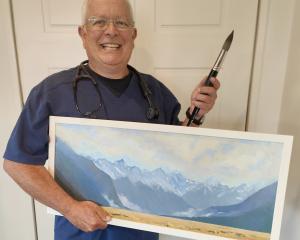Prof Boult, of the Johns Hopkins Bloomsberg School of Public Health, in the United States, is visiting the Otago Medical School as a Community Trust of Otago Visiting Professor.
A key problem in the US was the "growing mismatch" between an ageing population's need for healthcare for "chronic", long-term conditions and the health system's continuing focus on "acute", short-term care, he said in a recent health journal article.
Highlighting co-ordination issues, he cited a "typical case" of a 79-year-old widow living alone, and with five chronic medical conditions, requiring her to see three doctors.
She had also been seen by several physical therapists, occupational therapists, nurses and social workers, but no-one was co-ordinating her overall care, which was fragmented, unsafe and costly.
Prof Boult, who is well-known internationally for developing the "guided care" model of chronic care, said New Zealand still had time to take a more proactive and efficient approach.
In one form of "guided care", already tested successfully in Baltimore, Maryland, a registered nurse in a primary care office helps three to four doctors in caring for 50-60 patients with multiple chronic conditions.
Prof Boult was one of the main speakers at a symposium on Developing Chronic Care Models for Older People, run in Dunedin on Thursday by the Otago University Centre for Health Systems.
Centre director Prof Robin Gauld said the Government's "Better, Sooner, More Convenient Primary Health Care" initiative was partly responding to the kind of issues highlighted by Prof Boult.












